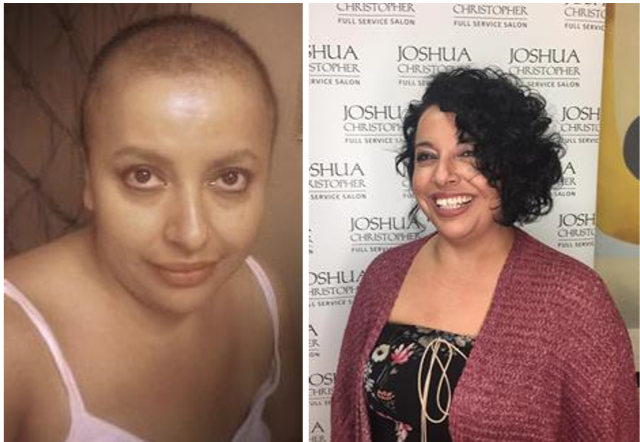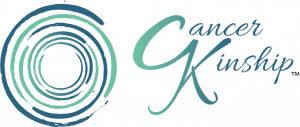About
Transitioning as a newly-diagnosed cancer patient to a survivor is a complex process. Long-term health risks are top-of-mind and the fear of cancer returning never fully fades. Many patients report experiencing feelings of fear, dread, distress, anxiety, depression, suicidal ideation, isolation and loneliness even when they are surrounded by loved ones who support them.
Many resources are raised and expended on cancer awareness, prevention, and research, but little is being done to address the physical, emotional and psychosocial effects of cancer. With more than 16.9 million Americans alive today with their own personal cancer survival story, there is much work to be done to support this growing community.
Cancer Kinship seeks to help patients adjust to their “new normal” lives as survivors. We believe that our programs and services will empower patients and survivors to take control of their health and future, resulting in the overall cancer community – our mothers, fathers, brothers, sisters, neighbors, friends – living longer, happier and more impactful lives.
Our Mission
To empower cancer patients to confidently face the disease through peer mentorship, individualized and group support, survivor education and socialization provided by caring and compassionate volunteers and staff.
Our Vision
A community where anyone affected by cancer–no matter where they stand in their journey– are able to brave the storm together, confidently and fearlessly, resulting in improved qualities of life and increased long-term survival rates for all.
Our Story

Cancer Kinship Executive Director Yolanda Origel (“Yoli”) is a 10-year survivor of Stage 3 breast cancer. After her initial diagnosis, Yoli underwent 16 weeks of dose-dense chemotherapy, a bilateral mastectomy, 7 weeks of daily radiation treatments, a latissimus dorsi flap reconstruction surgery with tissue expanders and many subsequent reconstructive surgeries. Additionally, she carries the BRCA 1 breast cancer gene, and had a hysterectomy to decrease her heightened risk of ovarian and other gynecologic cancers. This is her story.
The first time I heard the word “cancer” I was just 7 years old. My mother was diagnosed with breast cancer and valiantly fought until she passed away at the age of 42 from stage 4 metastatic terminal cancer that spread to her brain.
Watching her fight the biggest battle of her life, while being a full-time mom to 7 children and a loving wife to my father, was inspiring for me even at that early age. But as a child, I didn’t fully understand what she was going through: the fear she undoubtedly experienced; the physical pain from chemotherapy treatments that were much harder on a person’s body than they are now; and the sadness she must’ve felt knowing that she would be leaving behind her young children to be raised by a single father.
I wish the adult version of myself, the cancer survivor, could’ve been there to provide my mom a listening ear, a hand to hold and a shoulder to cry on during her darkest days. I wouldn’t have been able to save her from the vicious cancer that ultimately took her life, but she would’ve had someone nearby who understood what she was going through.
Since my mom passed away in 1986, and even since my own diagnosis in 2007, there have been significant advances in cancer treatments and surgeries and the number of cancer-related deaths are lower than ever before. But nevertheless, my family was impacted once more when my youngest sister was diagnosed with Stage 4 metastatic breast cancer in 2014 that had spread to both breasts, bones, lungs, and brain. She died when I was seven years into my own cancer survival.
After she died, I experienced survivor guilt and a profound sadness that prompted a deeper examination of my own beliefs and reason for my survival. I soon realized that the level of care and support that I had provided my sister allowed her to die with dignity and utmost care. I would not have been able to support her at the level that she needed had I not gone through my own cancer experience. My knowledge allowed me to be an active participant and decision-maker in her care planning meetings with her physicians and nursing staff.
Human connection can be a great healer. Additionally, socialization amongst survivors can be an empowering experience and the camaraderie that a cancer patient can experience when they meet and connect with fellow survivors can be life-changing and enhance their quality of life.
As a survivor, it has been incredibly fulfilling and an honor to serve as a support person for patients who are just entering their cancer storm. I never wanted to be an expert in cancer survival, but I was thrown into the storm and I have learned a lot about cancer throughout my life.
I have made it my personal mission to help patients adjust to their “new normal” lives as survivors with the development of sustainable and impactful programs and services offered by Cancer Kinship. With the creation and facilitation of opportunities for cancer patients and survivors to support each other, combined with the development of an individualized survivorship action plan for each patient that will empower them to take control of their health and future, our cancer community – our mothers, fathers, brothers, sisters, neighbors, friends – will live longer, happier and more impactful lives as thriving cancer survivors.”
~ Yolanda Origel, Executive Director & Founder
